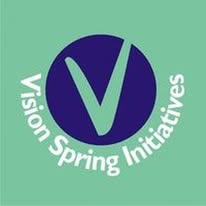Girl Impact Project
In 2020 Vision Spring Initiatives launched its Girl Impact Project focusing on Sexual and Reproductive Health and Rights (SRHR) of girls in secondary schools in Lagos state. This is in response to increased lack of access to SRHR and increased sexual violence and a need for more structured approach in responding to SRHR of girls in Nigeria. Evidence exists to support the benefits of educating young people on SRHR. According to the 2018 National Demographic Health survey, the percentage of young women age 18-24 who had sexual intercourse before age 18 decreases with increasing education, from 82% among those with no education to 17% among those with more than a secondary education. These figures necessitate an early intervention in the sexual and reproductive health and rights needs of young people.

The organization developed a two-year Training Manual aimed at educating girls and a few boys from years 11-24 on developmental issues with a focus on sexual and reproductive health and rights. The training will explore various strategies such as story-telling, debates, poems, and creative arts to enable young people to engage effectively. Other sessions will include creative thinking, responding to questions from the Pandora box, quizzes, pictorials and songs all aimed at enhancing learning on SRHR.
This manual aims to provide a coordinated approach to responding to SRHR and human development needs of young people from selected schools in Nigeria and contribute to the work government, civil society groups and individuals are doing towards focusing attention on the needs of young people. It is hoped that other institutions might replicate or partner with Vision Spring Initiatives towards this idea. This is a step preparatory to the establishment of the gender and development institute by the organization.
The overall objective of this training designed by Vision Spring Initiative is to facilitate the mainstreaming of the needs and concerns of women, girls and a few boys in all sectors of development initiatives and ensure that they participate and benefit from the development process. Our interventions and partnership with schools indicate an increased need for knowledge and education to enable young people to make informed choices about their lives. Trainers were carefully selected through a call and trained by a pool of seasoned trainers for the role they are expected to play. A total of 10 facilitators were trained. Before the training starts, it is important that the facilitator reads the entire Manual to understand how the content is organized. To effectively conduct this training, the organization has formed an inner committee on SRHR and development and another outer committee of 10 persons trained towards providing the training every week in schools
